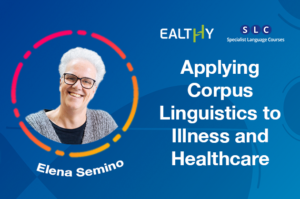
SIFE: Is Signing Off Without a Language Test Really Working for NHS Nurses?
Back to Menu ↩ When the NMC introduced the SIFE pathway in 2023, it was intended to solve a real and pressing problem: internationally educated

The IELTS exam is perhaps the most widely taken international English language test. Over 4 million people sit the test every year from around the world. IELTS is recognised by universities, companies, professional bodies such as the GMC and NMC, immigration authorities, and government institutions all around the world as a measure of English language ability.
The reading paper of the Academic IELTS test is a tough one. You have to read 3 academic texts taken from journals, reports and articles and answer 40 questions on them in 1 hour. The texts are long – between 2,000 and 2,750 words. This means you have to develop the ability to understand the main points quickly, as well as the ability to find the answers to the questions without reading every single word.
The best practice exercise to of all is to simply read. When you get used to reading articles from newspapers and magazines, you will have fewer problems with long articles in the test itself.
Practice reading quickly for understanding, then look for specific facts and figures of interest. Make notes as you go of new words and phrases.
As a starting point, we have compiled a list of 10 useful reading resources and websites which may help you practice your reading skills at home. They cover a very wide range of topics, so are very useful for the IELTS Test.

Covering world politics, economics, science and technology, offering 3 articles a week for free if you sign up.

Covering environmental issues, culture, nature and animals. Very illustrative with a lot of amazing pictures.

Lots of short, easy to understand, contemporary articles drawn from the world of social media.

American site focusing on history, both US and worldwide, with lots of current affairs articles too.

News, views and much more from the UK’s most famous media institution. All topics included – also a good site to practice listening.

Sometimes it’s good to expand your vocabulary by reading short stories – here are some funny ones, and there are plenty more on the website.
We hope these websites help you improve your reading skills for the IELTS, but let us know if you have any resources to add to this list!
IELTS is recognised and trusted by over 12,000 organisations in more than 150 countries worldwide. These include universities, employers, professional bodies, and immigration authorities.
IELTS for UKVI Life Skills: Results are given as Pass or Fail.
IELTS Academic and General Training: There is no fixed pass or fail. Instead, scores are reported on a 9-band scale. Each institution or organisation sets its own IELTS score requirements depending on its needs.
The test has 40 questions with different formats, such as multiple choice, True/False/Not Given, matching, and sentence completion.
Each correct answer = 1 mark.
Your total marks out of 40 are converted into a band score.
Band score conversion examples:
Academic Reading
Band 5: 15/40
Band 6: 23/40
Band 7: 30/40
Band 8: 35/40
General Training Reading
Band 4: 15/40
Band 5: 23/40
Band 6: 30/40
Band 7: 35/40
The IELTS band scale describes your level of English ability:
Band 9 (Expert user): Full command of the language, accurate, fluent, with complete understanding.
Band 8 (Very good user): Excellent command with only occasional errors; handles complex discussion well.
Band 7 (Good user): Generally effective use, with occasional mistakes; good understanding of detailed reasoning.
Band 6 (Competent user): Effective communication despite some errors; manages complex language in familiar situations.
Band 5 (Modest user): Partial command; can handle basic communication but makes frequent mistakes.
Band 4 (Limited user): Basic competence only in familiar situations; frequent problems with understanding and expression.
Band 3 (Extremely limited user): Understands and conveys only general meaning in very familiar contexts; communication often breaks down.
Band 2 (Intermittent user): Can use isolated words/phrases for immediate needs only; major difficulties with understanding.
Band 1 (Non-user): Essentially no ability beyond a few words.
Band 0: Did not attempt the test.
We are IELTS preparation specialists. Our uniquely effective course design and delivery offers an unparalleled range of Medical -and exam- focused courses and tests.
Our courses will enable you to achieve a high score in the IELTS Academic English test.

Back to Menu ↩ When the NMC introduced the SIFE pathway in 2023, it was intended to solve a real and pressing problem: internationally educated

If you’re at all interested in how language works in healthcare, you’d be nuts to miss the upcoming webinar from SLC and EALTHY.

Back to Menu ↩ Vocational ESOL focuses on the language that migrants and refugees need when working in the UK. Different sectors require different language
Get updates and get the latest materials on Medical English, OET and IELTS
